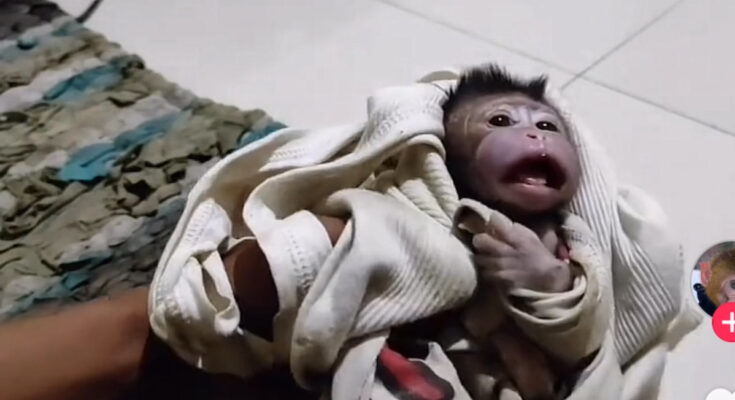Snake bites pose a serious threat to wildlife, including monkeys, who are vulnerable to venomous snakes in their natural habitats. Baby monkeys, in particular, are at an increased risk due to their smaller size, developing immune systems, and dependency on caregivers. In this article, we will explore the essential steps involved in caring for baby monkeys after a snake bite to ensure their survival and recovery.
Understanding the Threat of Snake Bites
Monkeys, especially babies, can be vulnerable to a variety of snake species, depending on their geographical location. In regions where venomous snakes like cobras, vipers, or pit vipers are common, the risk of snake bites becomes a grave concern. Baby monkeys, being curious and often exploring their environment, may accidentally provoke a snake, leading to a bite.
The severity of the snake bite depends on factors such as the type of snake, the location of the bite, the amount of venom injected, and the size and health of the monkey. For baby monkeys, a snake bite can be potentially fatal if not addressed immediately.
Immediate Steps After a Snake Bite
If a baby monkey is bitten by a snake, the first and most crucial step is to act swiftly. Time is of the essence, and the quicker the intervention, the higher the chances of survival. Here’s a breakdown of what needs to be done:
-
Stay Calm and Assess the Situation
-
The first response is to remain calm. Panicking can make the situation worse. Carefully observe the bite site to identify any immediate signs such as swelling, discoloration, or bleeding. You should also assess whether the snake was venomous, as this will influence the treatment plan.
-
-
Secure the Monkey in a Safe Location
-
Gently secure the baby monkey, ensuring it is in a safe and calm environment. This will reduce stress and prevent further injury. Baby monkeys are likely to be in shock, so a quiet, comfortable space is essential for their recovery.
-
-
Apply First Aid
-
If the bite is from a venomous snake, the application of a tourniquet or cutting the wound should never be done, as it can worsen the situation. Instead, gently clean the bite area with antiseptic if available. Avoid applying ice or attempting to suck out the venom—these are myths that can be harmful.
-
-
Limit the Monkey’s Movement
-
Keep the baby monkey as still as possible. Minimize physical activity, as this can help slow the spread of venom through its bloodstream. Immobilizing the affected limb, if applicable, can also help reduce venom circulation.
-
-
Get Veterinary Help Immediately
-
Time is critical. Call a veterinarian or a wildlife rescue center as soon as possible. A qualified professional will be able to administer antivenom and other necessary treatments to counteract the effects of the venom.
-
Post-Bite Care and Recovery
Once the baby monkey has received professional treatment, follow-up care will be necessary to ensure a full recovery. This care includes:
-
Observation
-
The monkey must be closely monitored for any signs of complications, such as infections or allergic reactions to the antivenom. The bite site should be regularly cleaned and checked for swelling or signs of necrosis.
-
-
Hydration and Nutrition
-
Venom can dehydrate the body, so providing fluids is crucial. Ensure the baby monkey is hydrated with water or specialized electrolyte solutions if advised by a vet. Proper nutrition should also be ensured to boost recovery, focusing on high-protein, vitamin-rich foods that will support the healing process.
-
-
Preventing Infection
-
Snake bites can introduce bacteria into the body. To prevent infection, administer any prescribed antibiotics and keep the bite site clean. Make sure the baby monkey is housed in a clean, controlled environment that minimizes the risk of further contamination.
-
-
Gradual Rehabilitation
-
If the snake bite causes any lasting effects, such as paralysis or reduced mobility, physical therapy may be necessary. Gradual rehabilitation will help the monkey regain its strength and mobility, and may include exercises to stimulate movement and joint flexibility.
-
Conclusion
Caring for a baby monkey after a snake bite requires immediate action, professional care, and ongoing attention to ensure the monkey’s recovery. By staying calm, securing the monkey, and seeking professional help, there’s a good chance for survival. Post-bite care, including hydration, infection prevention, and rehabilitation, will ensure that the baby monkey can return to its natural habitat in good health.
For those caring for wildlife, it’s important to be prepared and knowledgeable about the threats that snakes pose. By following these crucial steps, you can help a baby monkey navigate through this life-threatening situation and give it a better chance at survival.



